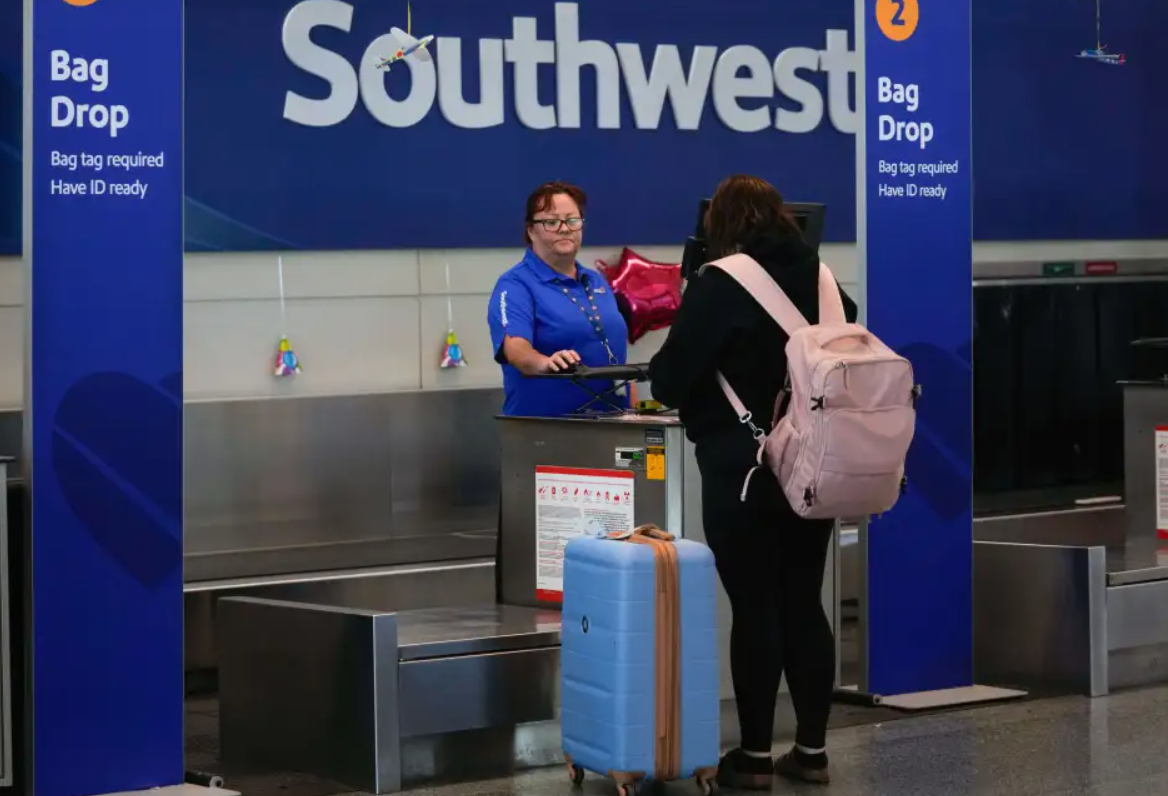Today is the final day to book a Southwest Airlines flight without paying fees for checked bags, as the airline ends its longstanding policy that allowed passengers to check up to two bags for free — a benefit that once set it apart from other budget carriers.
Southwest announced this change back in March, stating that the new fees would apply to flights booked starting Wednesday. Beginning then, the airline will charge $35 for the first checked bag and $45 for the second, with applicable weight and size restrictions.
For years, Southwest’s advertising highlighted its free checked bag policy as a major advantage over competitors. Under the new rules, only passengers who have reached higher tiers in Southwest’s Rapid Rewards loyalty program, purchased Business Select tickets, or hold a Southwest credit card will still be able to check bags at no additional cost.
Specifically, Rapid Rewards A-List preferred members and Business Select travelers will continue to receive two free checked bags, while A-List members and some other select customers will get one free bag. Cardholders will receive a credit toward one checked bag fee.
Passengers outside these groups will have to pay for checked bags. The airline also plans to introduce a new basic fare class for its lowest-priced tickets in conjunction with these changes.
Southwest previously estimated that charging for bags could generate about $1.5 billion annually, but also warned it could lose $1.8 billion due to customers opting not to fly with Southwest because of the new fees.
Another new rule starting Wednesday requires passengers to keep portable chargers visible while in use due to safety concerns about lithium-ion battery fires.
This bag fee policy is part of broader changes at Southwest. The airline has announced it will end its signature open-boarding process, which has been in place for over 50 years, moving to assigned seating next year. Southwest also plans to start charging extra for more legroom and to offer red-eye flights.
Southwest has faced recent challenges and pressure from activist investors to improve profitability. Last October, the airline reached an agreement with hedge fund Elliott Investment Management to avoid a proxy fight, though Elliott gained several seats on Southwest’s board.
In February, Southwest announced it would cut 1,750 corporate jobs, about 15% of its office workforce, marking the company’s first major layoffs in its 53-year history.
Despite these changes, Southwest’s stock price rose 3% at Tuesday’s opening bell, joining gains in the broader airline sector.














